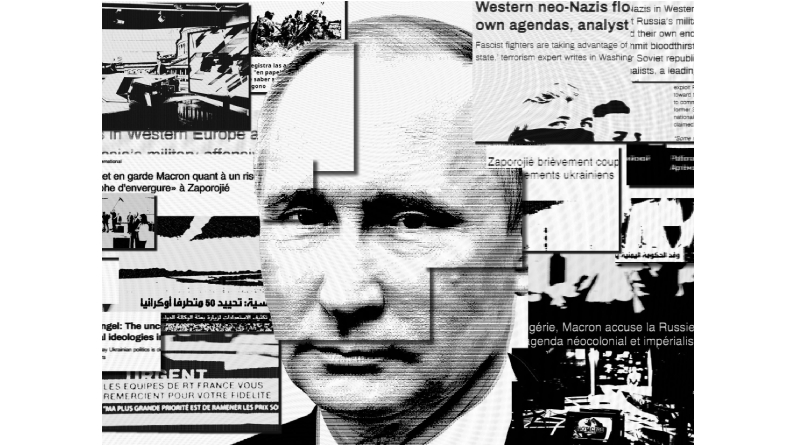Diplomatically, Russia has kept its distance from the United States and China for decades. Neither country was a close ally or an aggressive foe of Russia. According to Russian propaganda and political discourse over the past few years, China has become a close and crucial ally, while the United States has become the number one enemy. This week last year, Russian President Vladimir Putin and Chinese President Xi Jinping met on the sidelines of the Beijing Olympics and proclaimed their “eternal friendship.”
It’s a radical shift with far-reaching consequences for international relations. The story of one enormous Chinese balloon may have dispelled any remaining doubts about how drastically Russian opinions of the United States and China have shifted.
A welcome ally for the Kremlin
What Putin actually said to Xi on that chilly day in Beijing a year ago is unknown. However, it is well known that less than three weeks after that meeting, Putin sent his troops into Ukraine, and that from that day forward, Putin has needed his friend in Beijing desperately.
Xi is not a letdown. Contrary to the United States and Europe, China has kept doing business with Moscow despite not condemning Putin’s aggression. Relations between the two countries have been deemed “the best in history” by Russian Foreign Minister Sergey Lavrov, with the Chinese Foreign Ministry agreeing that the two countries are “stronger than just allies.”
Russia has lost much of its Western market, so they are eager sellers of cheap oil and gas to China, and China has been eager buyers. Reportedly reaching an all-time high of nearly 1.1 million barrels per day in May, China’s seaborne Russian oil imports are on the rise as the country looks to replenish its strategic crude stockpiles with cheap Russian oil, as reported by Bloomberg.
Keeping up with the ball
The newfound friendship between Russia and China and Russia’s animosity towards the U.S. were put to the test last week when a “Chinese spy balloon” appeared in the sky over the United States. While the balloon story captured the attention of media outlets around the world, in Russia it became an obsession, offering the country an opportunity to poke fun at the West while praising the Chinese.
Russian propaganda, to put it bluntly, was successful.

Russian media have been captivated by the trajectory of the orb since the very beginning.
The Minot military airfield in South Dakota is about 500 kilometres away, and it has bombers that can carry nuclear warheads. The plane first flew over the Malmstrom air base in Montana. The popular Ren-TV station in Moscow reported that the ball’s path took it through Nebraska close to the borders of Wyoming, home to yet another Air Force base. So on and so forth.
According to the Alliance for Securing Democracy’s global social media tracking dashboard Hamilton 2.0, Russian social media platforms “peppered their factual reporting with stories and memes that support the Chinese version of events” and mentioned the balloon story even more frequently than Chinese social media platforms.
The ridicule followed them almost everywhere they went.
At first, RT made fun of the Pentagon for reacting too strongly to a balloon and even brought on a “legal analyst” to explain why the United States was “blowing things out of proportion.” Popular Soviet propaganda outlet Komsomolskaya Pravda provided a lengthy explanation of why the United States “couldn’t shoot it down.” Vladimir Solovyov, Russia’s chief propagandist, took pride in how the incident reflected poorly on the United States.
Also Read :3 Strategies For Building A Brand That Your Target Market Will Love
On Saturday, just hours before the balloon was shot down, he said, “In the U.S., they still won’t shoot down a Chinese balloon.” The point was echoed in an extensive article titled “The United States was powerless in front of the Chinese balloon” published by the business newspaper Vzglyad.
The Russian media, meanwhile, couldn’t pass up the chance to savour the balloon’s polarising effect on American politics. Rep. Marjorie Taylor Greene (R-Ga.) was quoted favourably by Russian state media once again after she criticised the ineffectiveness of the Biden administration. Note that Greene is frequently quoted in Russian media’s coverage of the Ukrainian conflict because she is seen as a credible “critic of the Kyiv regime” (Rossiyskaya Gazeta). At least six times, she was cited by RIA Novosti in its coverage of the Chinese balloon.
The words of Beijing are echoed in Moscow.
The Russian media acted like a submissive colony when it came to China.
The Chinese Foreign Ministry was given ample time and opportunity by the largest Russian TV channels to “explain” the appearance of the strange orb over the United States. For a while, some Russian propagandists assured audiences that Beijing was not to blame after repeating the Chinese government’s explanation that the object was “just a civil aircraft that went off course.”
An anonymous author on Yandex, the most popular Russian search engine, claimed, “The Chinese balloon flew into the United States by accident.” It was not, and could not have been, moving in a predetermined path.
It was not enough for the Kremlin, however, even though it kept the Russian media in lockstep with the official Chinese line. Embarrassment, some way of using the opportunity to poke fun at the Americans, was necessary.
Now enter Colonel-General Georgy Shpak, a former commander of the Russian Air Force, who was brought in for an interview with the prestigious paper Argumenty Y Fakty (Arguments and Facts).
According to Shpak, the Chinese have a lot of wisdom. Before releasing it, they considered a zillion different outcomes. Plus, if they were successful in getting it into orbit, their mission was accomplished. I speculated that calling off Blinken’s visit was their main objective. I find this explanation to be the most reasonable. (Antony Blinken, the Secretary of State of the United States, was supposed to travel to China this past weekend, but his trip was cancelled.)
While continuing to praise China, Shpak also took several potshots at the United States.








